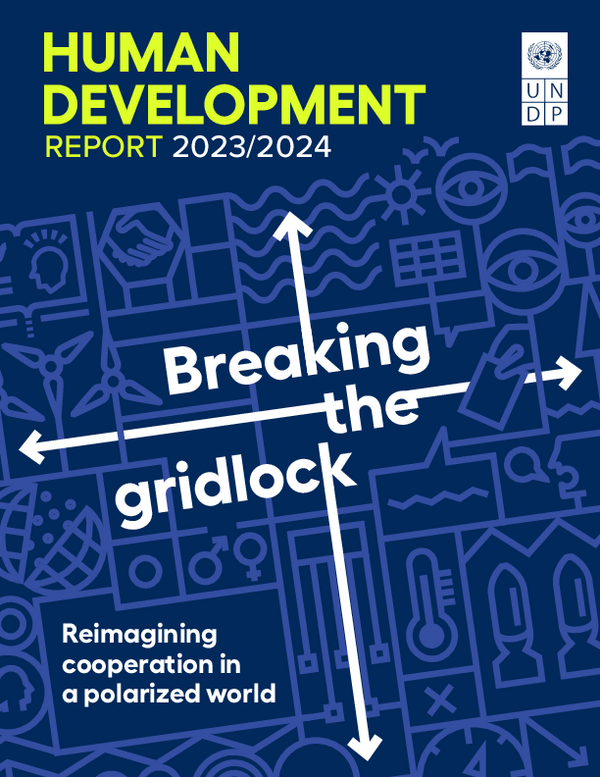 Read this article in French
Read this article in French- Share this article
- Subscribe to our newsletter
2023/24 Human Development Report
The 2023/24 Human Development Report (HDR), titled Breaking the Gridlock: Reimagining cooperation in a polarized world, reveals a troubling trend: the rebound in the global Human Development Index (HDI) – a summary measure reflecting a country’s Gross National Income (GNI) per capita, education, and life expectancy – has been partial, incomplete, and unequal. The report was published by the United Nations Development Programme (UNDP) in March 2024.
The HDI is projected to reach record highs in 2023 after steep declines in 2020 and 2021. But this progress is deeply uneven. Rich countries are experiencing record-high levels of human development while half of the world’s poorest countries remain below their pre-crisis level of progress. Global inequalities are being compounded by substantial economic concentration.
Among the 35 least developed countries (LDCs) that experienced a decline in their HDI in 2020 and/or 2021, more than half (18 countries) have not yet recovered to their human development levels of 2019.
All developing regions have not met their anticipated HDI levels based on the trend before 2019. It appears they have shifted to a lower HDI trajectory, which means there could be permanent setbacks in their human development in the future.
Democracy paradox
The report argues that international collective action is being hindered by an emerging ‘democracy paradox’: while 9 in 10 people worldwide endorse democracy, over half of global survey respondents express support for leaders that may undermine it by bypassing fundamental rules of the democratic process. Half of people surveyed worldwide say they have no or limited control over their lives, and over two-thirds believe they have little influence over their government’s decisions.
Political polarisation is also a growing concern with global impacts. Along with a sense of powerlessness, report authors say, it is also fuelling more insular policies. These are starkly at odds with the global cooperation needed to address urgent issues like the decarbonisation of our economies, misuse of digital technologies and conflict.
The report highlights that deglobalisation is not realistic in today’s world and that economic interdependence remains high. It points out that no region is close to self-sufficiency, as all regions rely on imports from others of 25 percent or more in at least one major area of goods and services.
A new generation of global public goods
The report emphasises how global interdependence is being reconfigured and calls for a new generation of global public goods. It proposes four areas for immediate action:
- Planetary public goods – for climate stability, as we confront the unprecedented challenges of the Anthropocene.
- Digital global public goods – for greater equity in using new technologies for human development.
- New and expanded financial mechanisms, including a new channel of international cooperation that complements humanitarian assistance and traditional development aid to low-income countries.
- Reducing political polarisation through new governance approaches that enhance people’s voices through deliberation, tackling misinformation.
Multilateralism plays a fundamental role here, the report argues, because bilateral cooperation cannot address the planetary nature of the provision of global public goods.
(UNDP/ile)
Read more and download the report on the UNDP website





Add a comment
Be the First to Comment